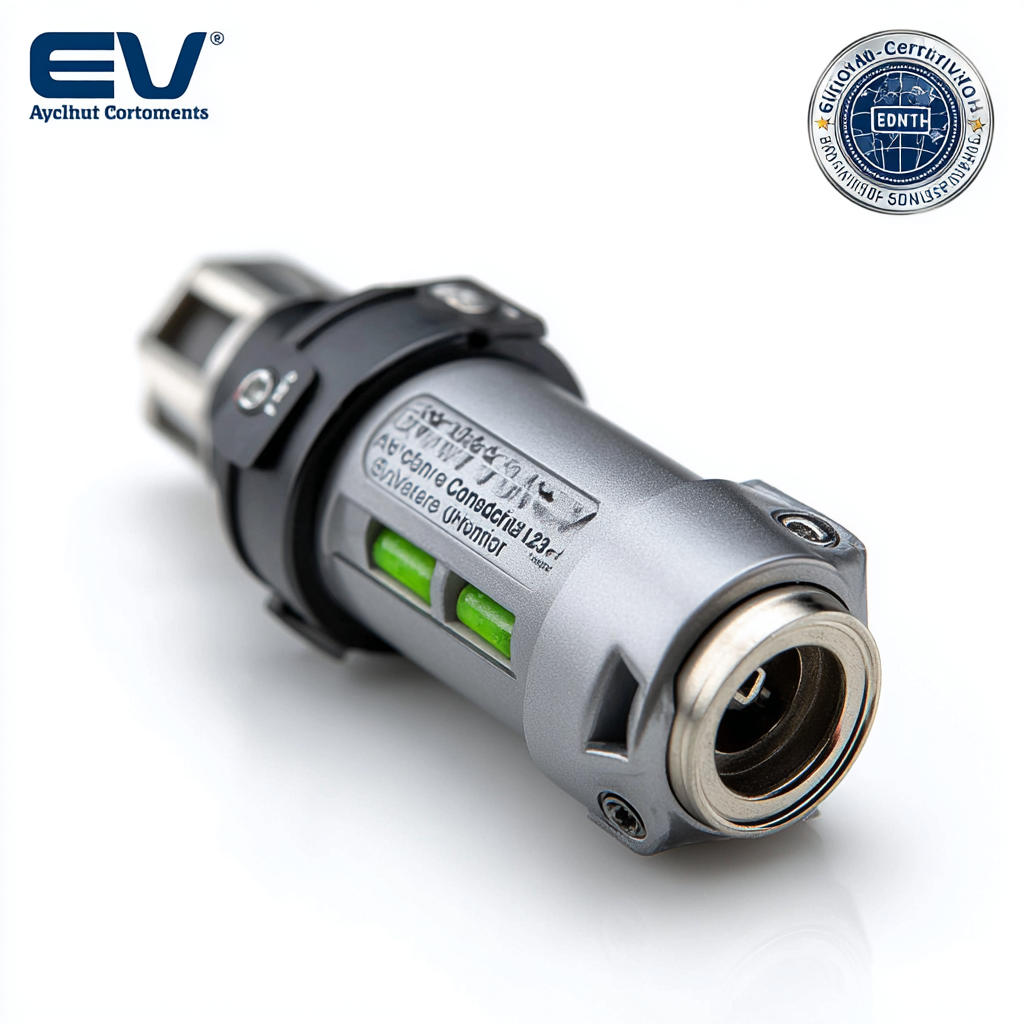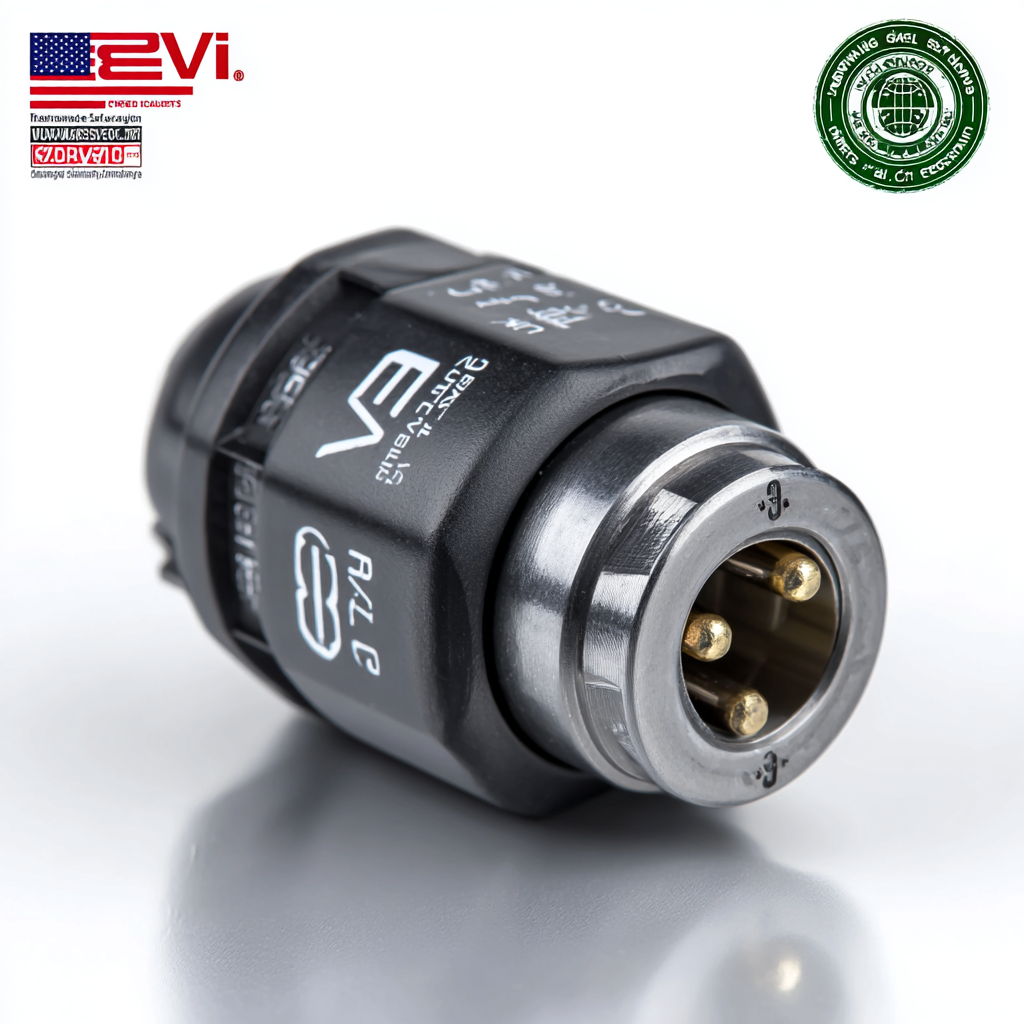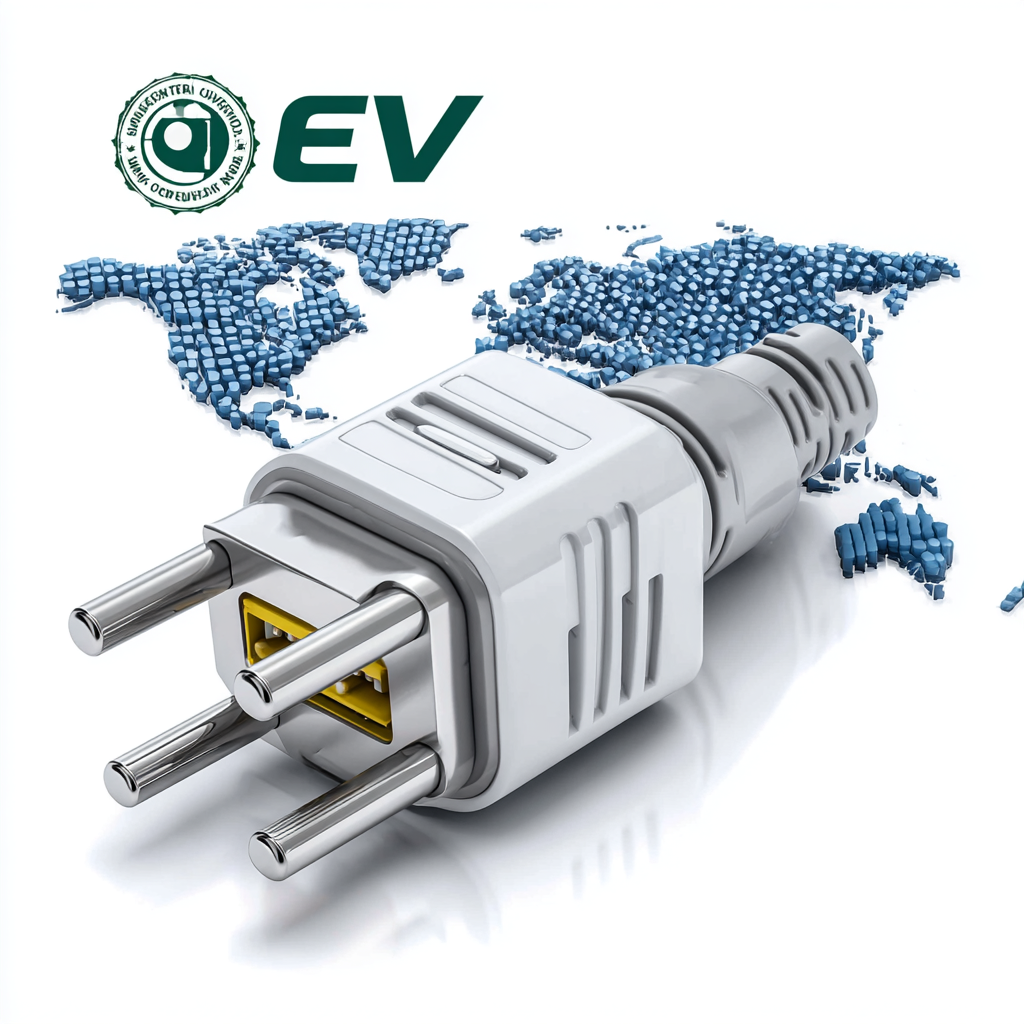In an era where electric vehicles (EVs) are revolutionizing the automotive industry, the significance of high-quality EV adapters and converters cannot be overstated. As reported by the International Energy Agency, the global electric vehicle stock reached over 10 million units in 2020, marking a staggering increase of 43% from the previous year. This surge has amplified the demand for reliable EV adapter converters to ensure seamless charging across different countries and electrical standards. To successfully navigate the import-export landscape, understanding the top certifications associated with EV adapter converters is critical. These certifications not only guarantee safety and compliance but also facilitate market access and consumer confidence. In this blog, we will explore the top five certification standards that every exporter and importer in the EV sector should know, paving the way for a successful global trade strategy.

In the rapidly evolving landscape of electric vehicles (EVs), the significance of certification for EV adapter converters has become paramount in global trade. These certifications not only guarantee compliance with safety and performance standards but also enhance market acceptance. As countries around the world adopt stricter regulations on environmental impact and electrical safety, having recognized certifications can be a game-changer for import-export businesses. Companies that prioritize these certifications streamline their entry into various international markets, mitigating risks associated with non-compliance.
Understanding the importance of EV adapter converter certifications goes beyond regulatory mandates; it reflects a commitment to quality and reliability. Consumers and businesses alike are increasingly inclined to trust products that bear well-known certifications. This trust facilitates smoother transactions and fosters lasting partnerships in the global marketplace. Furthermore, adhering to these standards can significantly reduce the chances of product recalls, thereby protecting a brand’s reputation and financial standing. In this way, investing in the right certifications establishes a solid foundation for sustainable business growth within the burgeoning EV sector.
| Certification Name | Issuing Authority | Region of Validity | Key Requirements | Importance in Trade |
|---|---|---|---|---|
| IEC 62196 | International Electrotechnical Commission | Global | Safety & Performance Tests | Ensures compatibility and safety standards worldwide |
| UL 2251 | Underwriters Laboratories | North America | Safety Testing for Electric Vehicle Supply Equipment | Critical for market entry in North American regions |
| ISO 15118 | International Organization for Standardization | Global | Communications between EV and grid | Enhances interoperability and user experience |
| EN 62196 | European Committee for Electrotechnical Standardization | Europe | Safety and Interoperability Testing | Essential for compliance with EU regulations |
| SAE J1772 | Society of Automotive Engineers | North America | Connector specifications for EV charging | Facilitates standardization across manufacturers |
When it comes to the thriving electric vehicle (EV) market, compliance with global standards for EV adapter converters is paramount for both manufacturers and importers. The successful navigation of these standards not only ensures safety and efficiency but also facilitates seamless market access across various regions. Key certifications such as the International Electrotechnical Commission (IEC) standards, Underwriters Laboratories (UL) certification, and those set by the European Union (CE marking) play critical roles in this process. These certifications affirm that the products meet rigorous safety and environmental requirements, enhancing trust and reliability in the eyes of consumers and regulatory bodies.

Furthermore, staying updated on regional regulations is essential for businesses looking to expand their horizons. For instance, the Federal Communications Commission (FCC) standards in the United States and the Chinese National Standards (GB) highlight the importance of interoperability and performance benchmarks. By aligning product development with these global standards, manufacturers can streamline their import and export processes, mitigating risks associated with non-compliance. Ultimately, the commitment to meeting these established benchmarks is not just about compliance; it positions companies for long-term success in an increasingly competitive and environmentally conscious market.
As the electric vehicle (EV) market continues to thrive globally, the importance of achieving compliance with international certification standards for EV adapter converters cannot be overstated. The right certifications play a pivotal role in ensuring not only the safety and efficiency of EV products but also in enhancing trade success. According to a recent industry report, compliance with top-rated certifications can improve market access by up to 30%, allowing manufacturers to penetrate lucrative foreign markets where safety and reliability are prioritized by regulatory bodies.
In light of this, the recent completion of a certified EV mechanic course underscores the increasing demand for qualified professionals to support the burgeoning EV sector. The EV repair industry is facing substantial challenges, particularly in regions like Australia, where a noticeable shortage of trained technicians threatens to hamper the growth of electric vehicle adoption. Furthermore, with the EV landscape rapidly evolving—marked by significant shifts in service practices and regulatory environments—businesses that prioritize certification are better positioned to navigate these complexities successfully. The proactive approach to acquiring relevant certifications not only boosts operational credibility but also aligns with the global push towards sustainable transportation solutions.
The electric vehicle (EV) market is experiencing unprecedented growth, spurred by increasing environmental awareness and government regulations promoting clean energy solutions. As the demand for certified EV charging solutions rises, industry stakeholders are increasingly recognizing the importance of complying with global adapter converter certifications. These certifications ensure that charging equipment meets safety, performance, and interoperability standards, fostering consumer confidence and expanding market reach.

Current trends indicate that consumers are seeking not only convenience but also assurance of quality when it comes to EV charging options. With a surge in EV adoption, the need for efficient and trustworthy charging solutions has become paramount. Manufacturers must prioritize obtaining top certifications, which not only enhances product credibility but also aligns with consumer expectations for reliability and 安全性. As the industry evolves, staying ahead of market trends and understanding demand dynamics will be crucial for businesses aiming to achieve import-export success in the competitive EV landscape.
As electric vehicles (EVs) gain traction globally, navigating the regulatory landscape surrounding their components, particularly EV adapter converters, becomes increasingly complex. Countries have instituted varying standards and regulations that manufacturers and exporters must adhere to in order to achieve compliance. Adapting to these international standards is not merely a bureaucratic hurdle; it is essential for achieving market access and maintaining competitive advantage. Understanding the certifications required in different regions can help businesses streamline their import/export processes.
Furthermore, staying informed about the dynamic regulatory changes is critical for manufacturers aiming to expand their reach. This includes familiarizing themselves with the top five EV adapter converter certifications that are recognized globally. By ensuring their products align with these certifications, companies can not only mitigate compliance risks but also enhance their credibility in the marketplace. This strategic approach not only facilitates smoother transactions but also fortifies the company’s reputation as a leader in sustainable transportation solutions.








